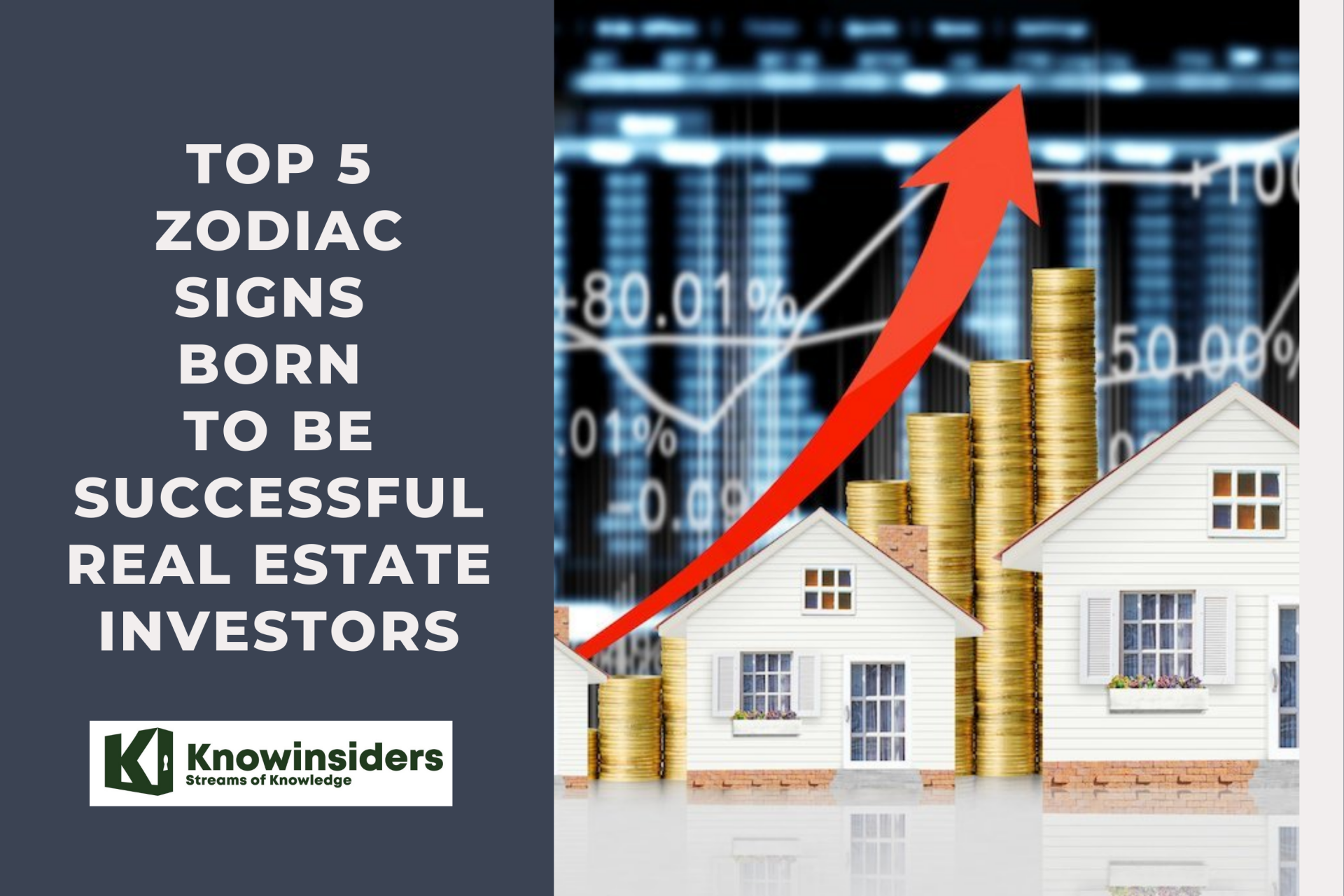Why Many Investors Are Paying Real Money For Virtual Land
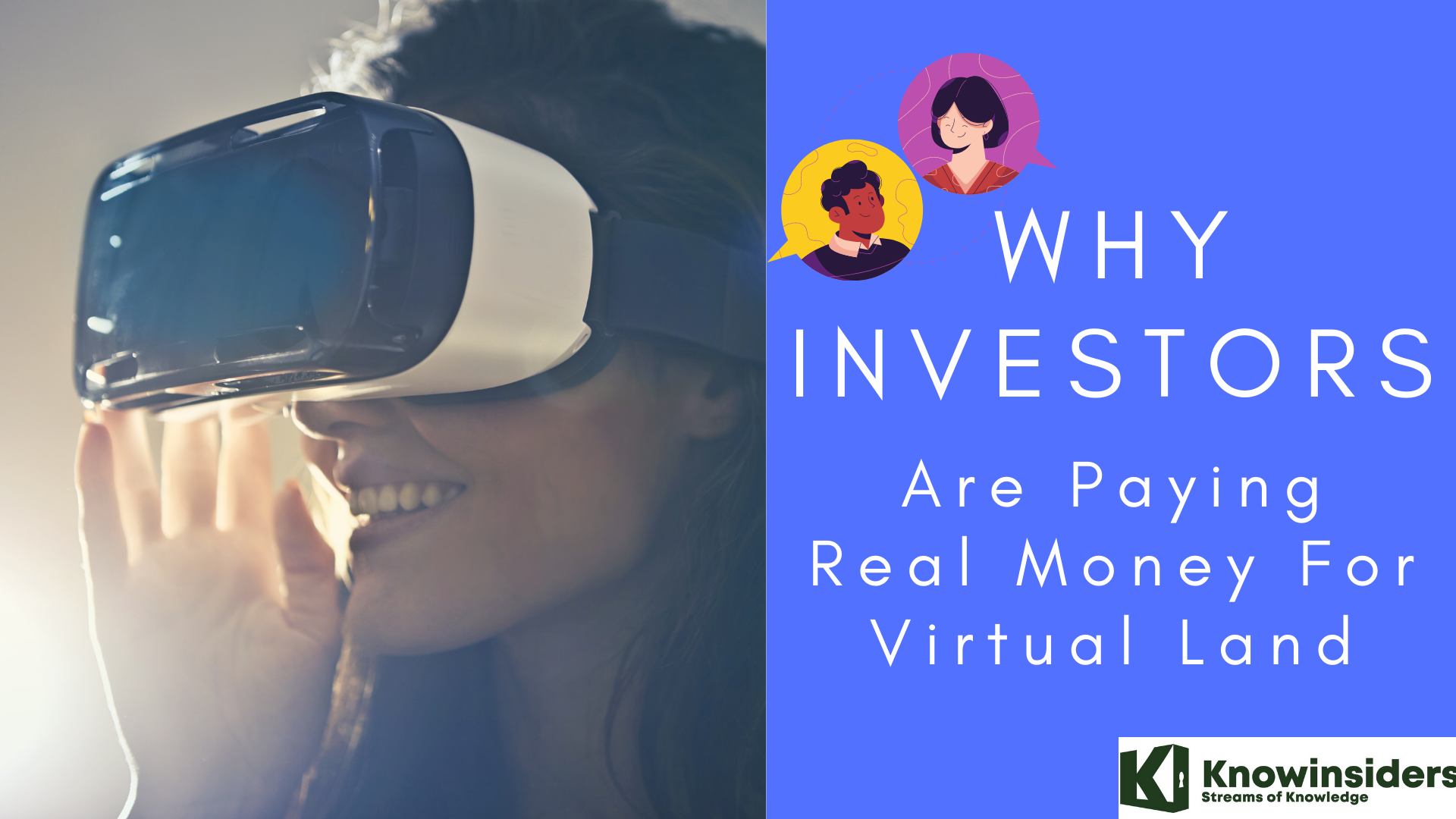 |
| Why Many Investors Are Paying Real Money For Virtual Land |
While most of us still can’t afford to buy a house in the real world, investors are pouring millions of dollars into buying up virtual land in fake ones.
CNBC reports that since Facebook made the move towards becoming Meta, prices of digital plots have gone up by as much as 500%. One company reported spending over $2.5 million USD on land in Decentraland, a metaverse based around crypto complete with its own currency where every piece of content in the game is owned, completely autonomously, by the players. Another firm revealed spending $4.3 million buying a plot of land in Atari’s The Sandbox metaverse.
It’s no secret the real estate market is skyrocketing, but the Covid pandemic is creating another little-known land rush. Indeed, some investors are paying millions for plots of land — not in New York or Beverly Hills. In fact, the plots do not physically exist here on Earth, according to CNBC.
Let’s explore what virtual land is, how it becomes famous, and why so many investors are paying real money for virtual land.
What Is Virtual Land?
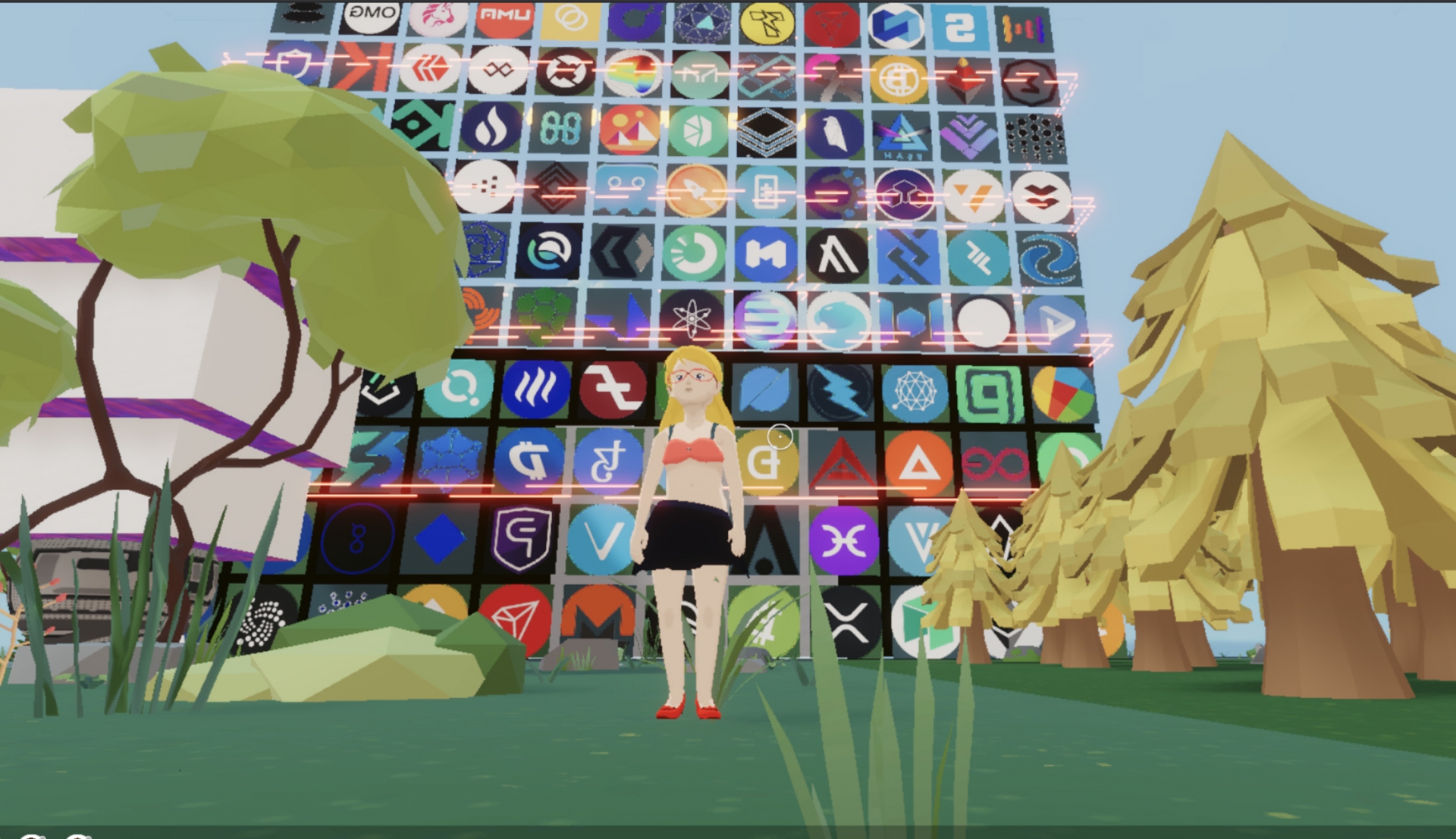 |
| Photo: Bloomberge |
An explosion in the popularity of digital assets known as NFTs (non-fungible tokens) has led to virtual items of all shapes, sizes and formats being bought and sold – from video art pieces to trading cards and even memes. But what if you’re looking for something on a slightly grander scale?
Enter virtual land, existing in a dizzying array of digital worlds that collectively form the metaverse. Already, there is no shortage of organisations offering users the opportunity to claim a piece of the metaverse for themselves. Platforms such as Decentraland, Somnium Space or The Sandbox have all sprung up in recent times to offer users the opportunity to own spaces within their individual virtual worlds.
If the concept of virtual land is a head-scratching proposition, consider that many already pay good money for virtual locations in the form of websites – distinct locations upon which anything can be built within the limits of the form. Buying virtual land, then, can be thought of as the Web 3 equivalent of purchasing a domain name. But what exactly is it you’re acquiring when you purchase virtual land?
The Rising of Metaverse
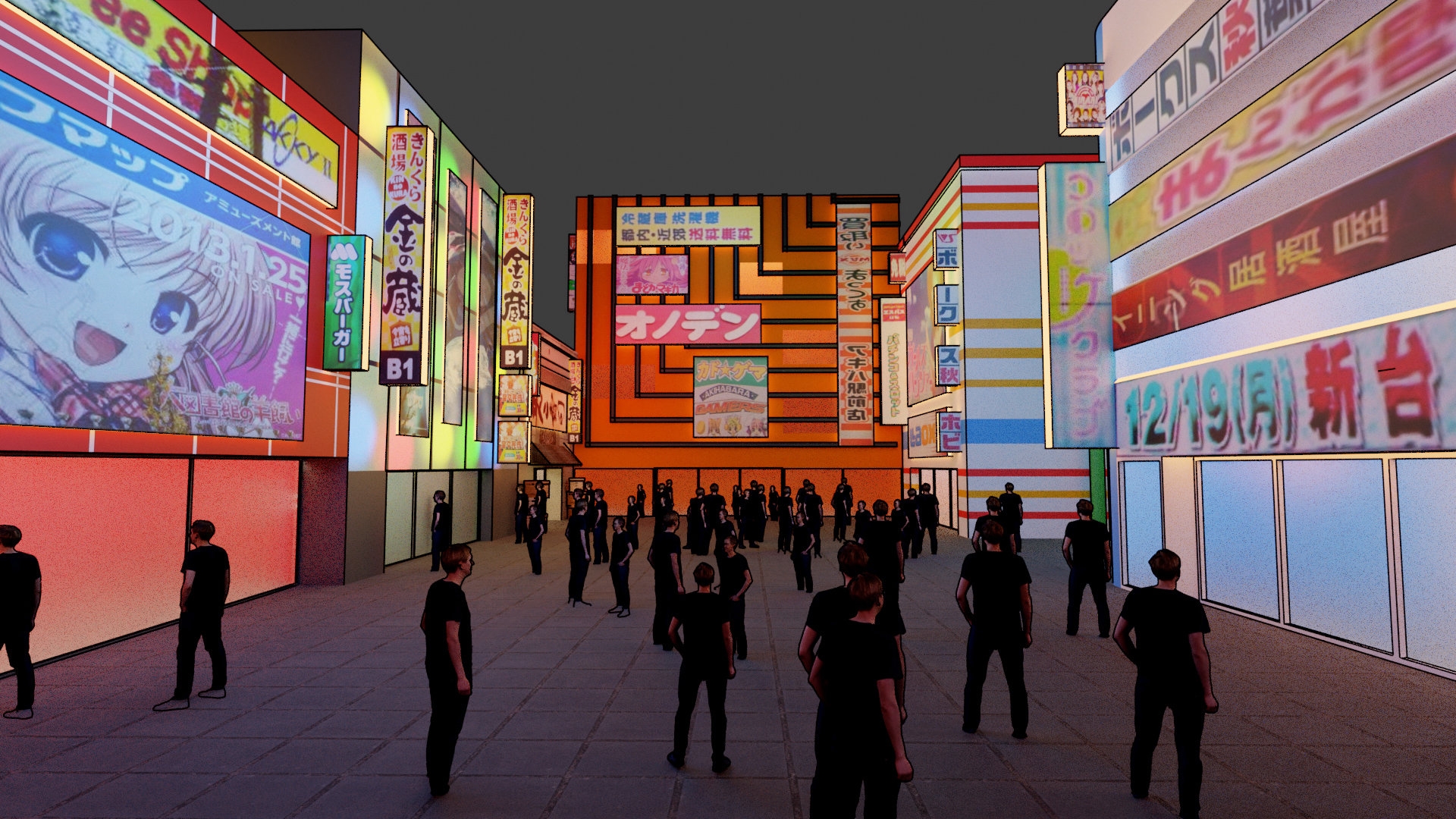 |
| Photo: Wall Street Journal |
The word “metaverse” is often traced to Neal Stephenson’s 1992 dystopic, cyberpunk novel Snow Crash, and many see a more recent inspiration in the dazzling warren of experiences at the heart of Earnest Cline’s 2011 novel Ready Player One. However, the metaverse is far from the stuff of sci-fi. It’s not even new.
Online communities have existed since at least the mid-1980s, and grew in the 1990s with chatrooms, AOL instant messenger and the first social media sites. The game World of Warcraft became a persistent social scene for millions in the early 2000s, and communities have continued to sprout up within and around games. Today, logging onto Fortnite, joining a chat with friends over a console platform and launching into a game with them is, especially to younger generations, just as social an experience as most other physical interactions.
Whether in virtual reality (VR), augmented reality (AR) or simply on a screen, the promise of the metaverse is to allow a greater overlap of our digital and physical lives in wealth, socialization, productivity, shopping and entertainment. These two worlds are already interwoven, no headset required: Think about the Uber app telling you via location data how far away the car is. Think about how Netflix gauges what you’ve watched before to make suggestions. Think about how the LiDAR scanner on newer iPhones can take a 3D scan of your surroundings. At its core, the metaverse (also known to many as “web3”) is an evolution of our current Internet.
“You’ve got your goggles on, 10 years from now, but they’re just a pair of sunglasses that happens to have the ability to bring you into the metaverse experience,” says John Riccitiello, CEO of Unity, maker of a video game engine that is increasingly used to develop immersive experiences on other platforms. “You’re walking by a restaurant, you look at it, the menu pops up. What your friends have said about it pops up.”
The metaverse will combine all aspects of life in one place. While many people already work at home, in the metaverse, you will be able to enter a 3D office and interact with your colleagues’ avatars. Your job may also be metaverse related and provide you with income directly usable in the metaverse. In fact, these kinds of jobs already exist in a similar form.
GameFi and play-to-earn models now provide steady income streams for people worldwide. These online jobs are great candidates for metaverse implementation in the future, as they show that people are willing to spend their time living and earning in virtual worlds. Play-to-earn games like Axie Infinity and Gods Unchained don’t even have 3D worlds or avatars. However, it’s the principle that they could be part of the metaverse as a way to earn money entirely in the online world.
What's the future of the metaverse?Facebook is one of the loudest voices for the creation of a unified metaverse. This is particularly interesting for a crypto-powered metaverse due to Facebook's Diem stablecoin project. Mark Zuckerberg has explicitly mentioned his plans to use a metaverse project to support remote work and improve financial opportunities for people in developing countries. Facebook’s ownership of social media, communication, and crypto platforms give it a good start combining all these worlds into one. Other large tech companies are also targeting the creation of a metaverse, including Microsoft, Apple, and Google. When it comes to a crypto-powered metaverse, further integration between NFT marketplaces and 3D virtual universes seems like the next step. NFT holders can already sell their goods from multiple sources on marketplaces like OpenSea and BakerySwap, but there isn’t yet a popular 3D platform for this. At a bigger scale, blockchain developers might develop popular metaverse-like applications with more organic users than a large tech giant. |
Why investors are paying millions for virtual land in the metaverse
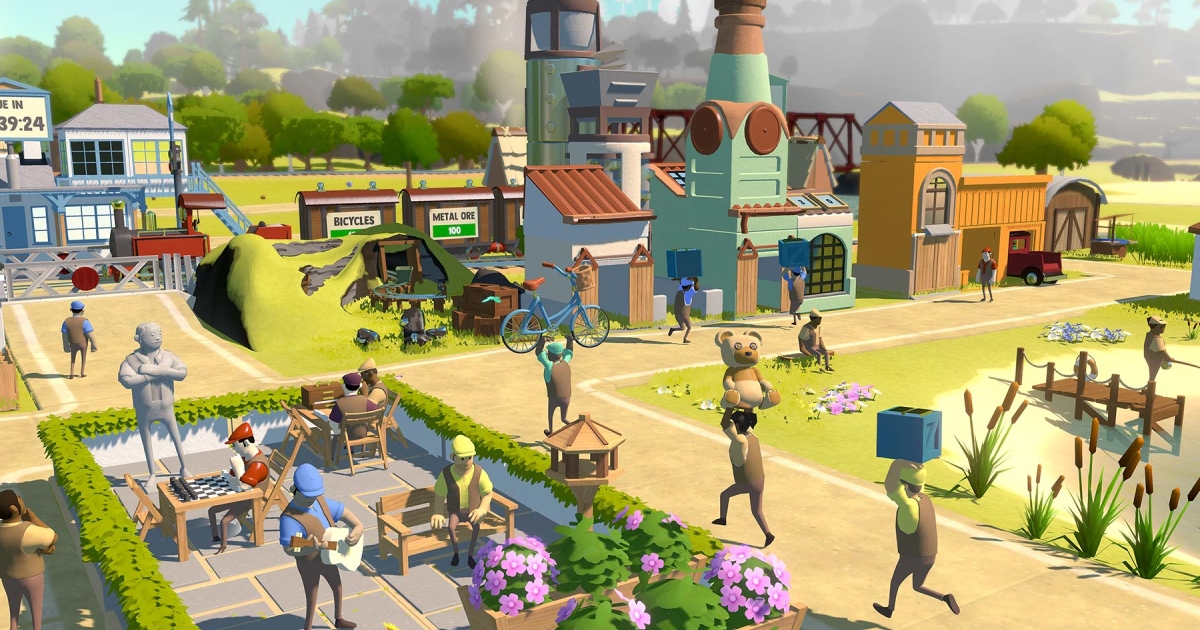 |
| Photo: Real World Observer |
“The metaverse is the next iteration of social media,” said Andrew Kiguel, CEO of Toronto-based Tokens.com, which invests in metaverse real estate and non fungible token-related digital assets.
“You can go to a carnival, you can go to a music concert, you can go to a museum,” Kiguel said.
In these virtual worlds, real people interact as cartoon-like characters called avatars, similar to a real-time multiplayer video game. Today, people can access these worlds through a normal computer screen, but Meta and other companies have a long-term vision of building 360-degree immersive worlds, which people will access through virtual reality goggles like Meta’s Oculus.
A recent report by crypto asset manager Grayscale estimates the digital world may grow into a $1 trillion business in the near future.
Here, major artists, including Justin Bieber, Ariana Grande and DJ Marshmello, are performing as their own avatars. Even Paris Hilton DJ’ed a New Year’s Eve party on her own virtual island.
Kiguel’s company recently dropped nearly $2.5 million on a patch of land in Decentraland — one of several popular metaverse worlds. “Prices have gone up 400% to 500% in the last few months,” Kiguel said.
Another hot metaverse world is the Sandbox, where Janine Yorio’s virtual real estate development company, Republic Realm, spent a record $4.3 million on a parcel of virtual land.
Yorio tells CNBC her company sold 100 virtual private islands last year for $15,000 each. “Today, they’re selling for about $300,000 each, which is coincidentally the same as the average home price in America,” she said.
How does buying virtual land work?
Virtual land sales function in the same way as NFT sales. Ownership is guaranteed by a unique piece of code stored on a blockchain that certifies an individual's rights over a digital asset in a way that cannot be altered.
“Land is an NFT, so that is, effectively your deed of ownership that is yours, yours to own forever,” said Dave Carr, formerly of Decentraland and currently involved with virtual real estate aggregator Parcel.
“There are also mechanics in development at the moment, such as rentals and fractionalisation of NFT, which is the splitting apart of an NFT so that people can own a piece of that overall NFT. And that's something that's rapidly being developed”.
Do you have to own land to participate in the metaverse?
 |
| Photo: Getty Images |
While casual users of virtual social worlds may be put off by the extremely high prices of land parcels, according to Carr, this doesn’t necessarily mean they will be completely priced out of the metaverse.
“One of the big questions that we get from people who are just finding out about virtual worlds in the metaverse is, 'oh I feel like I've missed the boat. Have I missed the boat?’” he said.
Carr insists it all depends on what they want to do and where they want to do it.
“For creators, for example, you don't need to own land to get involved in creating stuff or even having a shop or monetising your creations in the Metaverse,” he said.
Creators will still be able to build wearables, experiences and games in the metaverse that they can monetise if they choose.
“There are also other mechanisms coming into play like rentals, so a landowner can rent out the experience to a creator, to a community, to a brand. That can be the parcel if you like, where that creator can be involved in the metaverse and let's say, create a pop up shop and sell their wearables or what have you,” he said.
Another factor to consider, says Carr, is that virtual social worlds are still in a nascent period and the future is likely to bring more and more metaverses catering to different interests.
As such, there will be more opportunities for people interested in these new worlds to get involved.
“It shouldn't also be forgotten that there are more and more virtual worlds coming and more and more opportunities for people to get involved and buy land,” he said.
“So I think that there will always be some opportunities out there to stake your claim in the Metaverse as it were”.
Advantages of Owning Virtual Land In The Metaverse
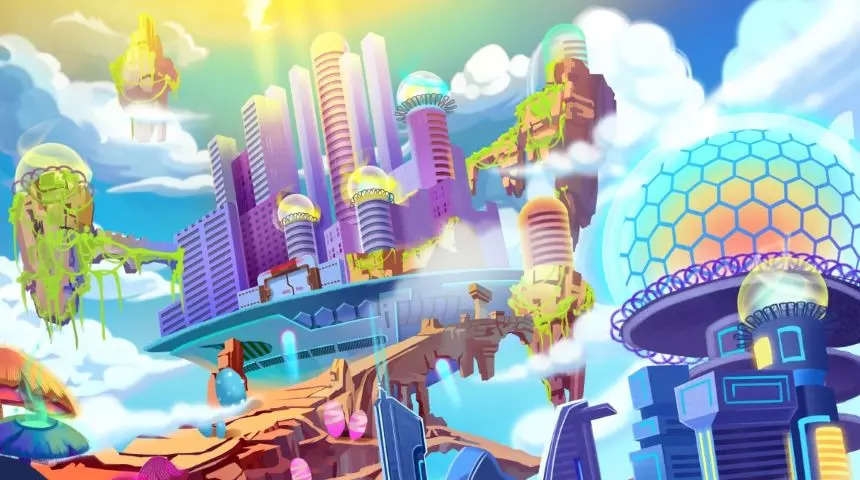 |
| Photo: Techgig |
1. Accessibility
Buying a new home today is notoriously difficult, to the extent that many young Americans never expect to own a home. Today, there are more renters than at any time since 1965, driven by rising home prices, lingering fears from the housing crash, and gargantuan amounts of student debt.
By not being able to afford physical real estate—which is a financial investment—billions of people are missing out.
Virtual property, on the other hand, brings complete accessibility. Anyone, anywhere in the world can tap into this new investment, without dropping huge sums of money on a down payment, or taking out massive loans. It’s a way for the cyber citizens of the future to acquire property at a time when physical prices are soaring and inaccessible to most.
2. Immutable data
Paths, inventory, transactions, contracts… everything that happens on a blockchain network is immutable: there can be no change or deletion of any of this data. This provides an extra level of security that we don’t have with our possessions here on the physical Earth.
This means you know what you buy today in 2021 will still be valid 500 years from now. On the other hand, the same physical property will change hands through theft, bribery, and corruption innumerable times.
In Haiti, an earthquake destroyed 60 years’ worth of property records, leaving thousands of Haitians without proof of their property ownership. Meanwhile, the Amazonia is mired by land ownership conflict, while in Myanmar, the government seizes farmers’ land outright.
Throughout American history, the government has seized private property using what’s called “eminent domain.” In fact, eminent domain is a global issue, in which governments use their power to seize private property.
In the decentralized virtual world, ownership simply cannot be seized by a central authority.
3. Transparent records
All transactions related to your virtual assets are transparent and easily accessible online through blockchain explorers. It means that if you sell a virtual town today for 200 ETH, it will appear as an open transfer in the Ethereum blockchain forevermore.
In a virtual world, the ownership of land and assets are known, and provably so. There can also be a finite supply of non-fungible tokens, down to the last “rare” item.
In the physical world, records are sparse and opaque. Who owns what? Since when? These questions are difficult, if not impossible, to answer in the physical world, unless you’re part of the centralized authority in that area.
4. Smart contracts
With blockchain-based virtual property, you can use smart contracts (a program stored on the blockchain) to allow for automated marketplace exchanges and other functions like creating new assets.
Any violation of these smart contracts would be impossible, given the immutability of the contract on the blockchain.
Traditional real-world assets will always be subject to the whims of governments or corporations. Blockchain assets are forevermore under your control and free from the corrupting influence of institutions.
Have you ever had a dispute with a landlord or housing authority? With smart contracts powering virtual property, contracts are transparent, verifiable, and automatically enforced.
5. Community
Do you know your neighbors? Your community? Many people don’t. On the other hand, crypto communities are home to incredibly lively discussions and social networks, forming tight bonds between people working on a common goal.
In a virtual world like Next Earth, one common community goal is environmental contribution, whereby a portion of all transactions is donated to environmental charities. With virtual worlds, it’s extremely easy to join and support projects that you believe in.
Ultimately, virtual land is obviously not going to replace the physical world, but it’s another step toward building our own digital planet.
Businesses That Have Bought Land in the Metaverse
 |
| Photo: The Sandbox |
1. Atari
It should come as no surprise that one of the first pioneers in video games and home computing would have taken early steps into the metaverse. Atari owns virtual property in both Decentraland and The Sandbox, metaverse platforms where visitors can play Atari-themed games and attend branded events, with plans to expand digital gaming opportunities across the board.
2. Samsung
Electronics maker Samsung launched its metaverse location, known as Samsung 837X, in Decentraland earlier this year. It was designed based on the Samsung 837 store in New York City, where all sorts of products can be experienced directly, and it offers a similarly immersive experience with NFTs, games, product introductions, and live performances. Samsung also hosted a digital version of its Unpacked event at 837X, launching the Galaxy S22 phone, on Feb. 9.
3. Adidas
Along with premiering one of many planned NFT collections in The Sandbox, sporting goods power Adidas purchased a plot of land there that it intends to fill with exclusive branded content, experiences, and items for purchase. The details at this time are thin, but Adidas describes the metaverse as "a natural place for Adidas Originals to enter: a wild world where possibilities are truly limitless and where anyone can express and be rewarded for their most original ideas."
4. PricewaterhouseCoopers
Back in December, the international accounting firm PricewaterhouseCoopers (PwC)'s Hong Kong branch purchased a piece of land in The Sandbox. Although the metaverse probably won't spur a lot of new and exciting accounting breakthroughs, PwC doesn't want to miss out on the potential. William Gee, a partner at PwC Hong Kong, told the Wall Street Journal in a statement that "the Metaverse offers new possibilities for organisations [sic] to create value through innovative business models, as well as introducing new ways to engage with their customers and communities."
5. Prager Metis
Of course, The Sandbox isn't the only metaverse platform with an accounting firm. New York-based Prager Metis International LLC opened a virtual office building in Decentraland in December. The reason? Chief Executive Officer Glenn Friedman told the WSJ simply "if the metaverse is going to replace the internet, then certainly business is going to use it."
6. Miller Lite
With businesses flocking to the metaverse, there must also be Happy Hour. Don't worry, Molson Coors has it covered. It's constructed the Meta Lite Bar, just in time for the Super Bowl, with nothing but Miller Lite as far as the eye can see. Along with virtual pool tables and virtual beer on tap, visitors can win REAL suds and experience exclusive content on Game Day.
The risks of buying virtual land in the metaverse
1. Metaverse properties are still a niche interest, with a limited market
This may be the most important thing to keep in mind when dealing with metaverse real estate. It's absolutely a niche market, though one with a very passionate fan base. Just like developers who do nothing but build mega-mansions, you have to realize that your market is small and may remain that way. There's nothing wrong with that, but your investment strategy should reflect this.
For some numbers, as of Dec. 21, 2021, NonFungible.com reported a total of 128,902 sales during the prior 365 days for metaverse properties (this also includes avatars). By comparison, there were 5.64 million existing homes sold in 2020, according to the National Association of Realtors. However, there are still virtual real estate parcels selling for $1 million, and more big brands are getting involved almost daily, so it's hardly a dead market.
2. If a metaverse platform folds, your investment fails with it
No one wants to think about their investment failing, but there's always risk with investing in anything, and we might as well talk about the elephant in the room: The risk with metaverse real estate is considerable, and worse, if a metaverse platform folds, your investment just disappears.
Unlike with real-world real estate, where you can always fall back on the fact that you still have this piece of land you can touch and stand on, a metaverse property can disappear entirely if the platform fails financially.
Members may have voting rights when closure is an option, but if there's no money left to keep the platform running, there's nothing stopping the person paying the bills from simply pulling the plug. But before you let that worry you too much, remember that Second Life, one of the earliest metaverse platforms, has been in operation since 2003.
3. The metaverse is actually not great for the real world
The metaverse itself is an electricity- and computer-intense simulation of the actual world, but it's easy to forget this while walking around in it. And although metaverse platforms are trying to get greener with tighter, smarter programming, the cryptocurrencies that power them aren't trying quite so hard.
Bitcoin mining consumes approximately 91 tera-watt hours of electricity, which is more than the entire country of Finland (population 5.5 million) and represents approximately 0.5% of the world's power usage. That means a lot of pollution from creating electricity, more carbon in the atmosphere, and so forth.
The good news is that you can help with this by buying carbon offsets for your investments in the metaverse or use your real-world voting power and voice to lobby for more environmentally friendly ways to generate electricity, which will help minimize the impact of the metaverse on the physical world. Every little bit helps.
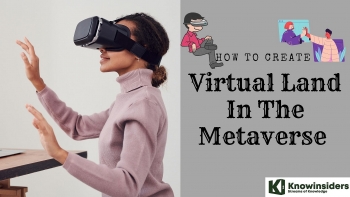 How To Create Virtual World and Virtual Land with Simple Steps How To Create Virtual World and Virtual Land with Simple Steps With virtual land and Metalverse becoming more real and popular every day, and slowly gaining a lot of attention, here is what we know about ... |
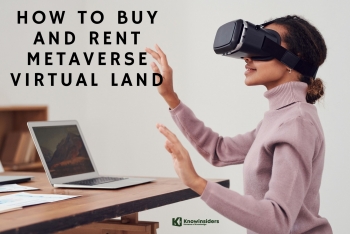 How To Buy And Rent Metaverse Virtual Land How To Buy And Rent Metaverse Virtual Land The process of buying and selling Metaverse Virtual Land (digital real estate) is quite similar to the buying and selling of Bitcoin because it’s not ... |
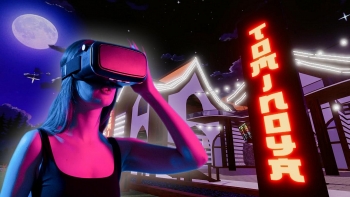 What Is Metaverse Virtual Land: Booming Real Estate Market What Is Metaverse Virtual Land: Booming Real Estate Market Are you curious to know what Metaverse virutal land is? How was Metaverse virutal land booming last year and what is prediction for the future? |



